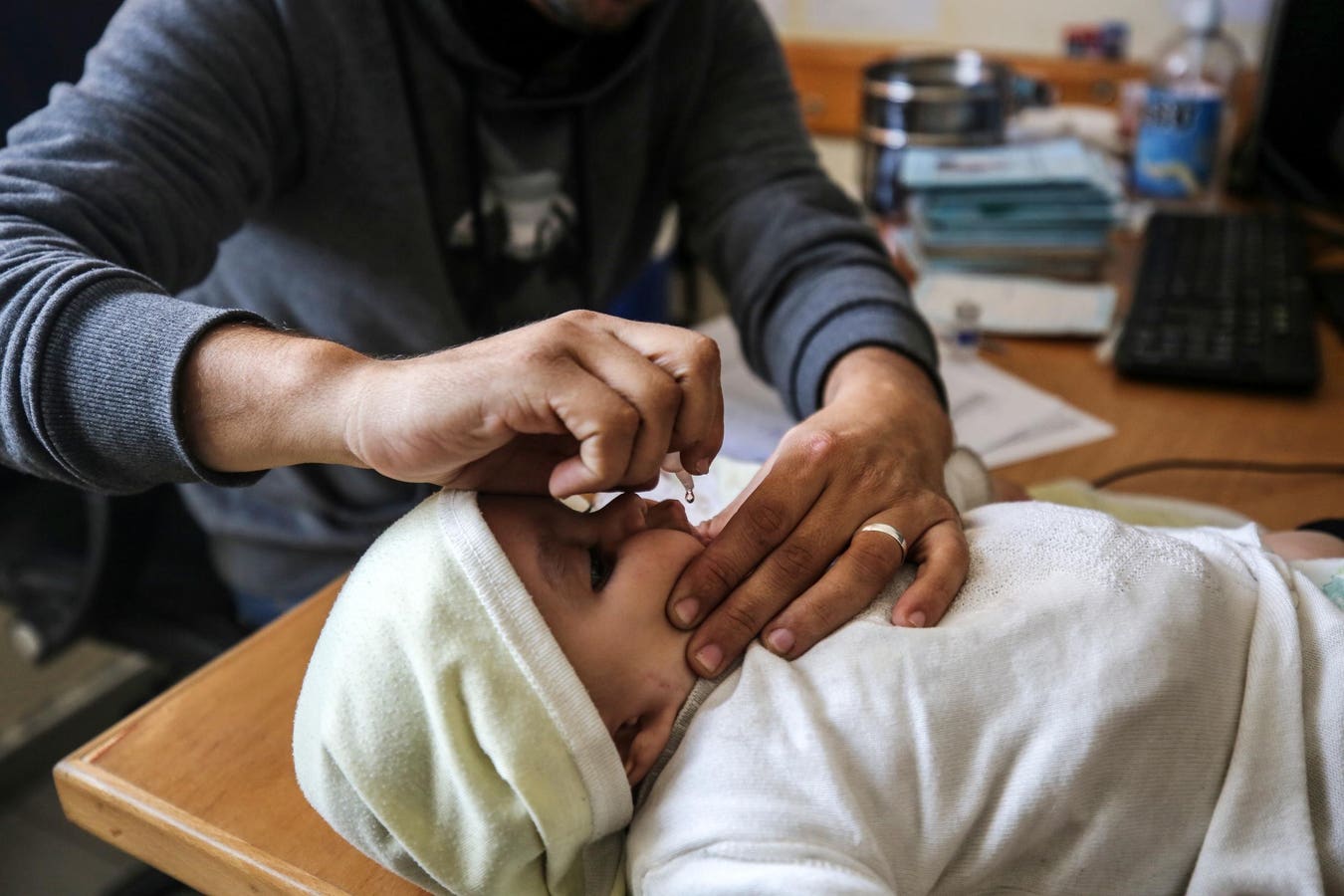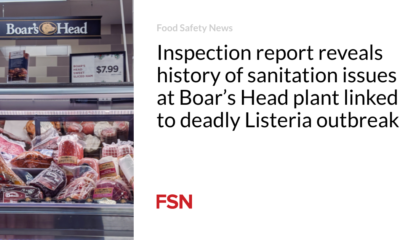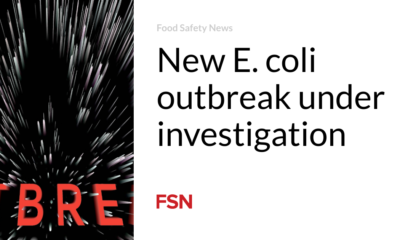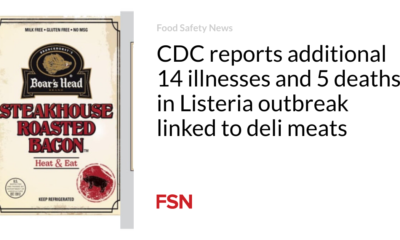Health
Polio case confirmed in Gaza raises fears of outbreak

An UNRWA worker provides a polio vaccine at a clinic in Deir al-Balah, central Gaza Strip … [+]
In the late 1990s, authorities declared Gaza polio-free. However, the regional Ministry of Health confirmed a case of polio in an unvaccinated ten-month-old child in Deir Al-Balah last Friday. The virus was found in sewage samples from World Health Organization sites in the Gazan cities of Khan Younis and Deir Al-Balah. reported last month, but this is the first confirmed case in Gaza in 25 years reports of other suspected cases. The baby is partially paralyzed by the disease.
Polio is often an asymptomatic virus. This increases its ability to spread quickly. The more people are infected, the greater the chance that there will be people suffering from serious complications such as paralysis and breathing problems. Paralytic polio affects one in 200 people infected with the polio virus.
The pathogen is sent through contact with the feces of an infected child or consumption of water or food contaminated with feces.
Overcrowded living conditions, poor sanitation, limited access to clean water and untreated sewage flowing openly between tents in Gaza refugee camps increase the risk of all kinds of infectious diseases, both bacterial and viral, including polio. And Gaza’s collapsed healthcare system is exacerbating the problem of allowing the polio virus to spread unchecked.
In light of escalating concerns over multiple public health crises, there have been renewed calls for a temporary or permanent ceasefire from global public health leaders and aid organizations. This is because humanitarian operations across the Gaza Strip are severely hampered by the ongoing conflict. Health workers cite difficulties in obtaining crucial relief supplies for the population, including urgently needed (polio) vaccines to be administered to approximately 640,000 children. These must first be transported in specially designed refrigerated trucks that pass through Israeli or Egyptian-controlled checkpoints, and then delivered to clinics in war-torn Gaza.
Healthcare International say It is highly unlikely that at least 50,000 children born since the current massive increase in hostilities began in October 2023 after the Hamas attacks in Israel have received the planned vaccinations due to serious disruptions in healthcare.
Polio is a preventable disease. The polio vaccine is given to children at intervals, for example at eight, twelve and sixteen weeks of age, followed by a booster after the age of three.
The problem of possible polio epidemics is not limited to Gaza. Time magazine reported that in October 2021 was a 17-month-old Ukrainian girl was struck by paralytic polio19 years after European public health authorities declared polio eradicated from the entire region. And then a second case of the disease appeared in December, followed by another 20 in the following months.
The Russian invasion of Ukraine, which began in February 2022, was serious disturbed access to medical care, including the provision of routine polio vaccinations in response to the 2021/2022 polio outbreak. While the WHO for the time being declared the epidemic over in September 2023, amid the ongoing war, authorities say there is still a high risk of spread due to the population’s relatively low immunization rate of around 75%.
The collateral damage that war causes to civilians is always extensive. This includes the destruction of homes and infrastructure, injuries and deaths from bombs and bullets, an increase in antimicrobial resistance and the (re)emergence of preventable diseases such as polio.













